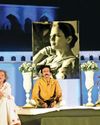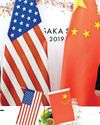The Easter bloodshed in Sri Lanka has resurrected fear, anger and memories of the civil war. THE WEEK reports from the island of grief

Two days after the Easter-day blasts, the streets of Colombo are eerily silent. As night falls, policemen walk the streets looking for suspicious strangers. Curfew and fear have gripped the city.
At Colombo 13, the road to St Antony’s Shrine is deserted, though a few shops are open. The Catholic shrine was one of the three churches attacked by suicide bombers on the morning of April 21. A clock on a wall near the shrine reads 8:45am. “It shows the time we heard the explosion,” says Yogaraja, a 42-year-old who lives nearby. “All of us here are like one community—be it Muslims, Hindus, Christians or Buddhists. St Antony is our saviour in this part of Colombo. He will not spare the wrongdoers.”
Around 40 kilometres north of Colombo, the seaside city of Negombo is still grappling with shock and grief. Scores of believers were killed by the blast in St Sebastian’s Church; its floor covered by flesh, blood and fragments of stained glass.
A giant canopy has been erected near the damaged church. Under it, mourners sit on chairs placed on the sandy ground. After the prayers, pallbearers make their way through the crowd. Loud cries fill the air as the mass burials are held.
The blasts targeted three churches and four hotels in Colombo, Negombo and Batticaloa, a city in Sri Lanka’s Eastern Province. More than 350 died and around 500 were injured. A national emergency has been declared, and life has come to a standstill. “We never expected that we would become the target of such deadly attacks,” says Fr Lour Fernando of St Sebastian’s Church. “People are afraid. But we will have to remain strong and keep praying.”
Denne historien er fra May 05, 2019-utgaven av THE WEEK.
Start din 7-dagers gratis prøveperiode på Magzter GOLD for å få tilgang til tusenvis av utvalgte premiumhistorier og 9000+ magasiner og aviser.
Allerede abonnent ? Logg på
Denne historien er fra May 05, 2019-utgaven av THE WEEK.
Start din 7-dagers gratis prøveperiode på Magzter GOLD for å få tilgang til tusenvis av utvalgte premiumhistorier og 9000+ magasiner og aviser.
Allerede abonnent? Logg på

The female act
The 19th edition of the Qadir Ali Baig Theatre Festival was of the women and by the women

A SHOT OF ARCHER
An excerpt from the prologue of An Eye for an Eye

MASTER OF MAKE-BELIEVE
50 years. after his first book, Jeffrey*Archer refuses to put down his'felt-tip Pilot pen

Smart and sassy Passi
Pop culture works according to its own unpredictable, crazy logic. An unlikely, overnight celebrity has become the talk of India. Everyone, especially on social media, is discussing, dissing, hissing and mimicking just one person—Shalini Passi.

Energy transition and AI are reshaping shipping
PORTS AND ALLIED infrastructure development are at the heart of India's ambitions to become a maritime heavyweight.

MADE FOR EACH OTHER
Trump’s preferred transactional approach to foreign policy meshes well with Modi’s bent towards strategic autonomy

DOOM AND GLOOM
Democrats’ message came across as vague, preachy and hopelessly removed from reality. And voters believed Trump’s depiction of illegal immigrants as a source of their economic woes

WOES TO WOWS
The fundamental reason behind Trump’s success was his ability to convert average Americans’ feelings of grievance into votes for him

POWER HOUSE
Trump International Hotel was the only place outside the White House where Trump ever dined during his four years as president

DON 2.0
Trump returns to presidency stronger than before, but just as unpredictable